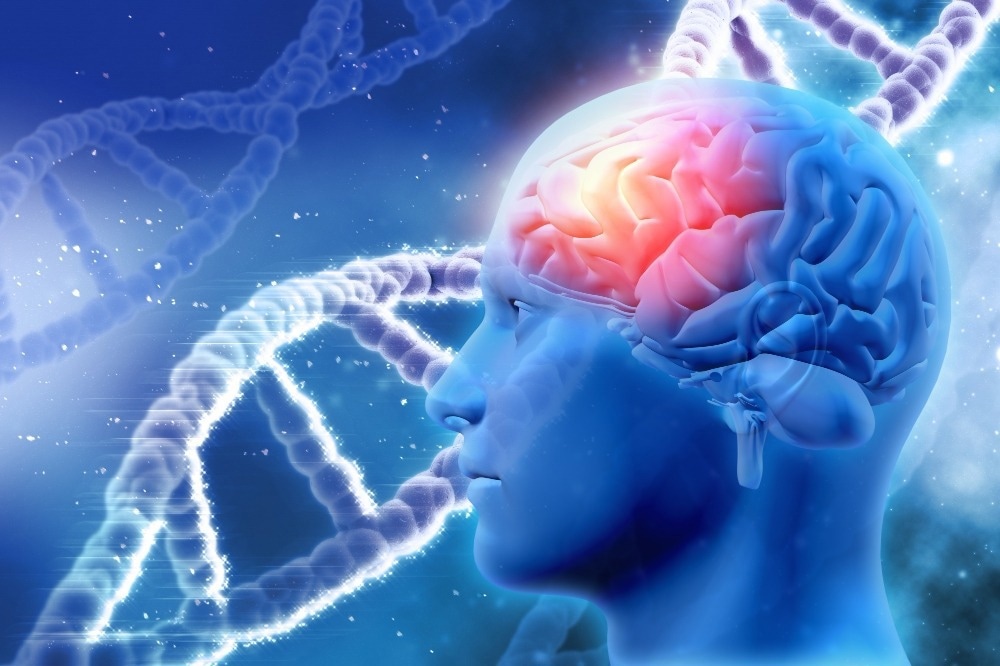The protein PKMzeta has been strongly associated with long-term memory formation. Decreased levels of this protein in the brain are associated with neurological illnesses such as Alzheimer’s disease, depression, and aging.

Working at the University of São Paulo in Brazil, the researchers used epigenetics to study the mechanism, which could be associated with pathologies such as Alzheimer’s. The discovery expands scientists’ knowledge of the central nervous system. Image Credit: kjpargeter/Freepik.
Researchers from Brazil and the United States have uncovered a mechanism that helps explain the link and may pave the way for future medicinal innovations. Their findings are described in the journal Biochimica et Biophysica Acta (BBA)–Gene Regulatory Mechanisms.
The researchers employed epigenetics to explain the mechanism, which is the study of how environmental stimuli activate or inhibit gene expression without changing the DNA sequence. Gene silencing by DNA methylation is a common epigenetic approach employed by researchers in which methyl groups are introduced to a specific portion of a gene to block its production. For example, methylation of a gene’s DNA sequence may switch the gene off, preventing it from producing a protein.
According to the authors, in the central nervous system, the protein CREB1 ordinarily binds to a part of the gene PKMzeta, causing it to express the protein of the same name. However, the study found that hypermethylation of this portion of the gene resulted in much-reduced quantities of the protein PKMzeta.
Our analysis revealed that DNA methylation regulates expression of this gene, which plays a role in several pathologies. I believe that when basic science is well done it provides vital information for drug development and advanced therapies.”
Deborah Schechtman, Study Last Author and Professor, Institute of Chemistry, University of São Paulo
FAPESP funded the study through five projects (19/06982-6, 15/24046-5, 15/17812-3, 20/13929-1, and 20/16204-8).
Inside DNA
Dimitrius Pramio, the study’s first author and a Ph.D. Candidate in Biochemistry at IQ-USP described the materials utilized, some of which were obtained through collaborations with Yale University and SUNY Upstate Medical University in the United States. “The materials included databases, human cells isolated from patients or modified in the laboratory, and animal cells,” he states.
Several studies were performed to investigate if methylation of the gene PKMzeta would result in a decrease in protein levels, utilizing drugs that interfere with DNA methylation and the gene-editing technology CRISPR. In this situation, changes to the gene PKMzeta prevented the protein CREB1 from properly binding. “Production of the protein PKMzeta did indeed fall as a result,” Schechtman adds.
The findings indicated that the gene in question requires CREB1 to activate the creation of the protein PKMzeta and that DNA methylation explains the decrease in protein levels.
The researchers then looked at the role of other genes in the central nervous system to determine if they were affected by the DNA hypermethylation process that hindered CREB1 binding. “We wanted to find out whether the process occurred more globally,” Schechtman comments.
If this pattern of DNA methylation affects the expression of other genes besides PKMzeta, it must be especially significant to brain abnormalities likely connected with diseases, and the scientists demonstrated that the mechanism is not limited to the protein PKMzeta.
Next Steps
Several paths forward emerged from this research. One approach would be to look at other genes impacted by this process of DNA methylation that suppresses CREB1 binding to see what role they play in the organism and whether they are linked to disorders.
Another idea is to try to figure out what the protein PKMzeta accomplishes in the central nervous system.
We know it’s involved in memory, but how does this work in detail? That’s a relevant question.”
Deborah Schechtman, Study Last Author and Professor, Institute of Chemistry, University of São Paulo
For Pramio, it is also necessary to inspect the mechanism in more accurate models. Specific brain regions, for example, may be studied, as could animal models of diseases like Alzheimer’s and depression.
“Other studies have shown that the use of certain antidepressants in animal models of depression restores expression of the gene PKMzeta when it’s inhibited, but they didn’t investigate DNA methylation,” he said.
Other conditions can also be investigated. Schechtman, for instance, is researching chronic pain, and it is possible that the gene PKMzeta is involved in such circumstances due to its involvement in the synaptic remodeling of neurons. “Many questions and hypotheses have been raised by the study,” she comments.
Progress in these study lines, according to Pramio, could lead to the creation of novel treatments in the future, which would be especially essential for depression and Alzheimer’s, considering the difficulty these conditions provide to clinicians.
Source:
Journal reference:
Pramio, D. T., et al. (2023). DNA methylation of the promoter region at the CREB1 binding site is a mechanism for the epigenetic regulation of brain-specific PKMζ. Biochimica et Biophysica Acta (BBA) - Gene Regulatory Mechanisms. doi.org/10.1016/j.bbagrm.2023.194909.